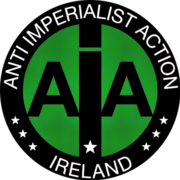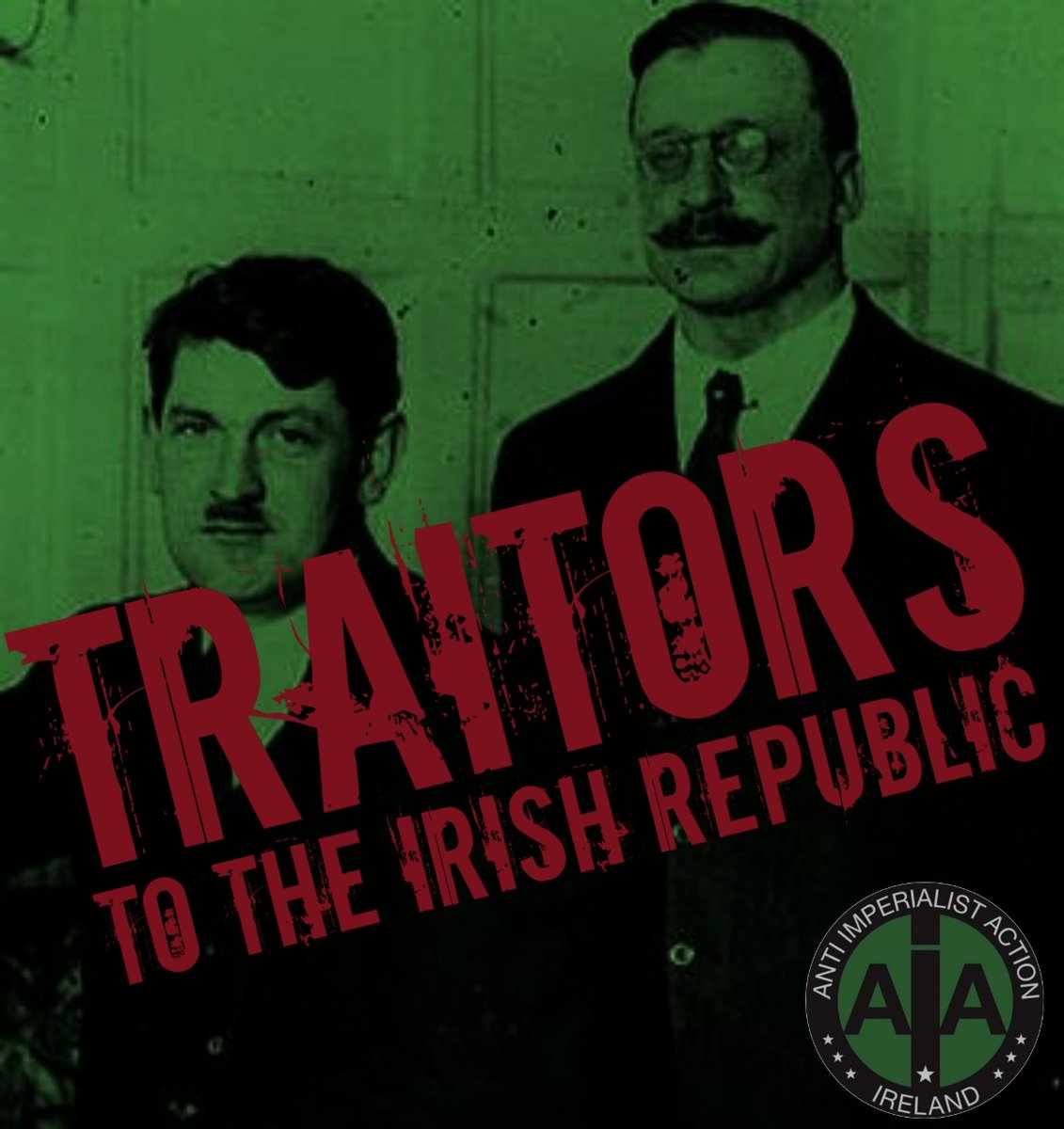The following is part three is a series of articles by Irish Socialist Republican Seán Doyle, conclusion to follow.
17/03/2021
We concluded part 2 talking about Ernie O’Malley and his quote referencing the church as being a powerful and hidden influence.
Now let’s take a look for a moment at Michael Collins. His moment of power and bittersweet glory, it was apparently his weakness. What kind of bind was Collins entangled in? how had the British managed? Was it the threat of war? Was it his moment of power? His time in history? He was well aware the treaty was an absolute impossibility for republicans to accept.
The threat of war by Lloyd George did not phase them. He above all knew what they endured for years, and particularly during the war of Independence, martial law, murder and mutilation, also the generations before them never surrendered or relinquished their claim to be an independent republic.
Strange as it may seem he was not hoodwinked, but however he was out maneuverer. Temperamentally it is alleged he was closer to the fighting men in the forecourts than to some of his government colleagues in city hall. For instance, he wrote “I am sympathetic with a majority of the IRA, I would wish them to continue now and finish the fight, I want to help them to do so, to postpone the struggle would be a forlorn consolation, the big business men and opportunists’ politicians will come forward when peace is established and perhaps after some years gain control, their interests will never demand a renewal of war” Does that remind you of any group today??
Let’s just speculate for a moment, the British considered Collins the most dangerous man in Ireland. I personally believe he was the gel, a brilliant intelligence officer who coordinated a very talented team, but none the less, he was held by the British responsible for most actions including taking out, in one operation the British secret network in Dublin. I’m sure also in time they realised and also believed the assassination of Wilson on his door step in London. Lloyd George had succeeded to get Collins to wage a war on his own comradeswith their help and supplies. There was now no going back for him. Question, as he had done their deed and no one more fitting to do so. They no longer needed him. Would it be unwise to let the most dangerous man in Ireland live? Winston Churchill and Lloyd George would sleep a lot easier if he was gone.
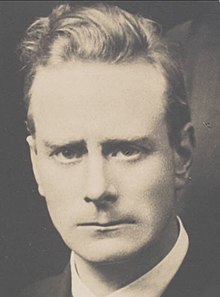
I have already quoted Pearse about fighting is to win. Liam Mellows said “The Free State was a British creation and you can’t make a silk purse out of a sow’s ear, this fight has been for something more than the flesh pots of Empire”. So, let’s take a mere glace of the British negotiations. Lionel Curtis who would serve as one of the constitutional experts during the negotiations of the Anglo Irish Treaty,, October to December 1921, pointed to the antipathy engendered by Lloyd George among Irish nationalists in the handling of the Redmond and Carson talks during 1916 to 1918 in an important article that appeared in the June 1921 number of round table, the quarterly of the liberal imperialist opinion which outlined Curtis wrote candidly of Lloyd Georges less than productive role as a member of the government and while Prime Minister Curtis points to the failure of the Irish convention of 1917 to 1918 which had been set in motion by Lloyd George and his duplicity with Carson and Redmond, pledged the unionist right to remain outside home rule while also telling Redmond he would not allow unionists to undermine a settlement in an all-Ireland context. This Curtis believed, is what Irish men have in their minds when referring to the great betrayal, “he is not to be trusted”. On the 9th of November in the Guild Hall in London he openly supported the conduct of the British forces in Ireland, the auxiliaries and Black and Tans. This support by him, of the methods of reprisal and state terrorism by the police, this was also privately assured to General Tuder, incidentally Churchill set up the Black and Tan and put Tuder in charge, Tom Jones also stated in 1919-1920 when Lloyd George sent more troops to Ireland, industrial disturbance continued in Britain. On January the 17th, 1920 Lloyd George asked Air marshal Sir Hugh Trenchard how many airmen are available tocontain the revolution, he said max 100, Lloyd George presumed they could use machine guns and drop bombs.
Makes you wonder how many British soldiers returning from The Great War, or our country for that matter, to go back to work, having to struggle for working conditions and proper wages ever realised that despite their battlefield experiences that their chief Lloyd George was preparing to mow them down and bomb them.
Winston Churchill was concerned that the present reprisal tactics were getting them a bad press in America, he believed that they could continue enlisting auxiliaries and Black and Tans. But he had a plan, to offer a truce and to go into talks with Sinn Fein would be great for public opinion with no military disadvantage whether Sine Fein accept it or not, Britain would be seen as the peace makers, if kept we will have great advantage, they will have great difficulty getting men to go back to war if they break, say just after the May elections would be a good time to start the talks. As it happened, the truce started in July. Churchill was only tying to get the high moral ground and continue their war, part of what he said “if you wish to come to a conference on the basis of the integrity of the empire, come, if not, not” not much hope of an independent Republic, only ever a British dominion, so let’s return to the catholic hierarchy and their absolute support to the British created provisional government, who apparently had chosen to forget the British policy of reprisal. Arch Bishop Byrne, Cardinal Logue and the rest of the Bishops at Maynooth, the murder carried out by RIC auxiliary’s division D company in Galway, first Father Michael Griffin, of Rahoon, his body found in a shallow grave, killed execution style, a single shot to the head, then the Loughmane brothers, their battered, mutilated and charred bodies in an isolated pond and on it went, all sanctioned by Lloyd George and Churchill in Whitehall. Incidentally it appears, the seeds I refer to as British sown in Irish soil are still germinating and growing, for example shockingly, only recently, the then Minister for justice Charlie Flanagan was asked to comment on the conduct of the B Specials and Auxiliaries, he said “they were just doing their job, protecting people from harm”.
The Bishops, who have taken to use thechurches to preach their support unequivocally, and condemn the Republicangovernment, your Lenten pastoral 26th of February, particularly supportive of the British provisional government, stating amazingly, “it is the first time in centauries the Irish people had charge of their own destiny”, reiterated in a statement issued by the Bishops on the 26thof April, presided over by cardinal Logue and read at all masses on the 7th of May, again the provisional government looked for a further statement from their Autumn meeting in Maynooth on the 10th of October, the Bishops joint pastoral supported them without reservation and was published in the newspapers on the 11th of October. The pastoral letter as follows: Our country, that yesterday was so glorious, is now a by word before the nations for a domestic strife, as disgraceful as it is criminal and suicidal. A section of the community refusing to acknowledge the government set up by the nation, chosen to attack their own country as if she were a foreign power, forgetting apparently, that a dead nation can not be free, they have deliberately set out to make our motherland, as far as they could, a heap of ruins, to carry on what they call a war, but which, in the absence of any legitimate authority to justify it, is morally only a system of murder and assassination of the national forces, for it must not be forgotten that killing in an unjust war is as much murder before god as if there were no war. It went on to excommunicate all who persisted in such actions, to insist in all this time, there is no question of mere politics but of what is morally right or wrong and the people’s duty of supporting the national government. The timing of this deserves special attention, the government amnesty was designed to tempercriticism of the special power’s resolution, then before the Dáil, empowering military courts to impose the death penalty on Republicans opposing their imposition. But Master and Pastor, and British backing, executions began a month later. The collaboration of British, their pup the Provisional Government, church and business class, the line up of counter revolutionary forces was complete, and a powerful control of the press at home and England and of course the church pulpit in every parish in every county, giving moral authority and absolution for execution.
Little wonder, with such cooperation, we have lived to see the unfolding of the scandal of Mother and Baby Homes, Tuam, Industrial Schools, Golden Bridge etc, all due to church and state involvement, sought by the state and welcomed by the church with the moral authority they needed to impose the British Free State on the people and bury the republic.
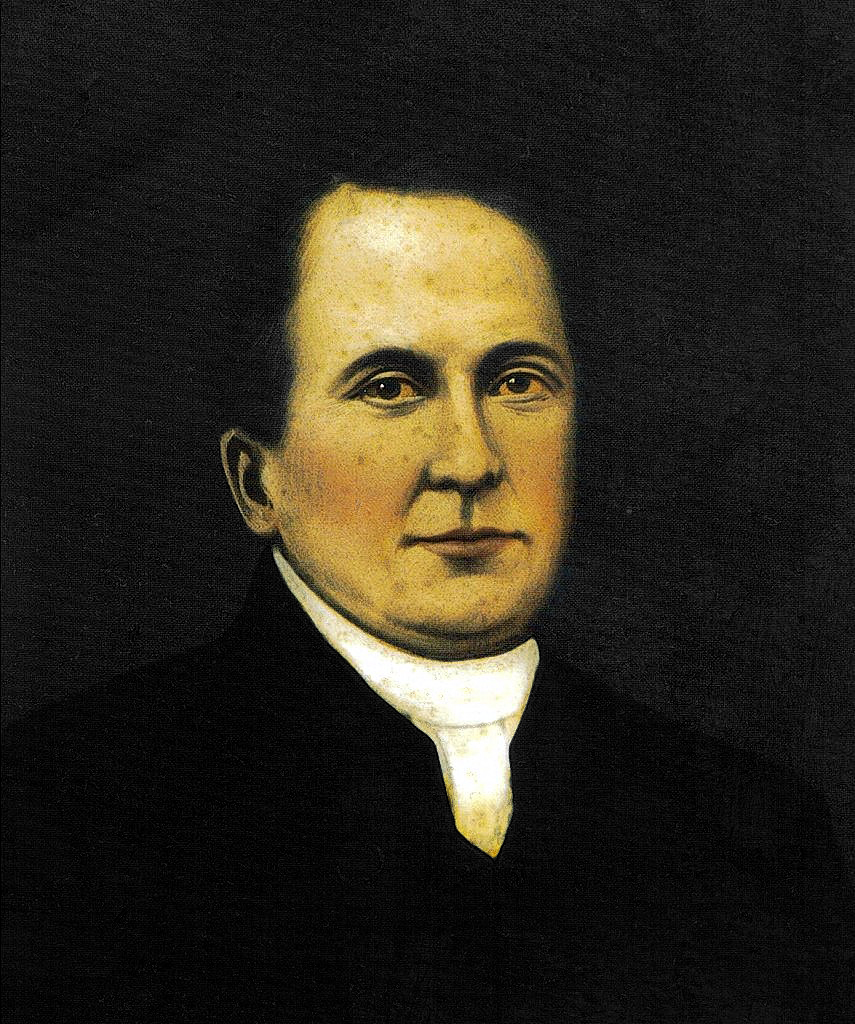
Historically, the weapon of moral authority was evident and as always, influential on the side of the foreign invader. For example, in 1798, the Society of the United Irishmen, many of whose leaders were Protestant and free thinkers, the Catholic hierarchy, and most of the priesthood denounced them in favour of the government, some more clever, disregarding their denunciation. The wisdom of the people was greater than the moral authority of the church. None so pleased thanFather Murphy of Wexford, as the song goes from Boolavogue, when they burnt his house over his head, and he had to take to the fields as an insurgent, and none so happy, when he as a priest, instructed them to disarm and they retained them, with which to fight for freedom. And another noteworthy case, the case of Robert Emmet, the Irish race celebrate his memory, cherish him in their hearts as the highest ideal of patriot and martyr, but when on the occasion of his martyrdom, the catholic Arch Bishops of Dublin and Armagh presented an address to the Lord LieutenantRepresentative of the British government in Ireland, denouncing Emmet in the strongest possible terms.
Another example was in America, the Irish people were so proud of the testimony of General Lee, that more than half of the continental soldiers during the American War of the Revolution, against the British occupation were Irish during that War of Independence. But bishop Troy, the catholic Bishop of Ossory, ordered the Catholics in Ireland to observe a day of fast, and to humble themselves in prayer, that they might avert the divine wrath, provoked by their American subjects, who seduced, by spurious notions of liberty and other elusive expectations of sovereignty, disclaim any dependence upon Great Britain, and endeavour by force of arms, to distress their mother country.
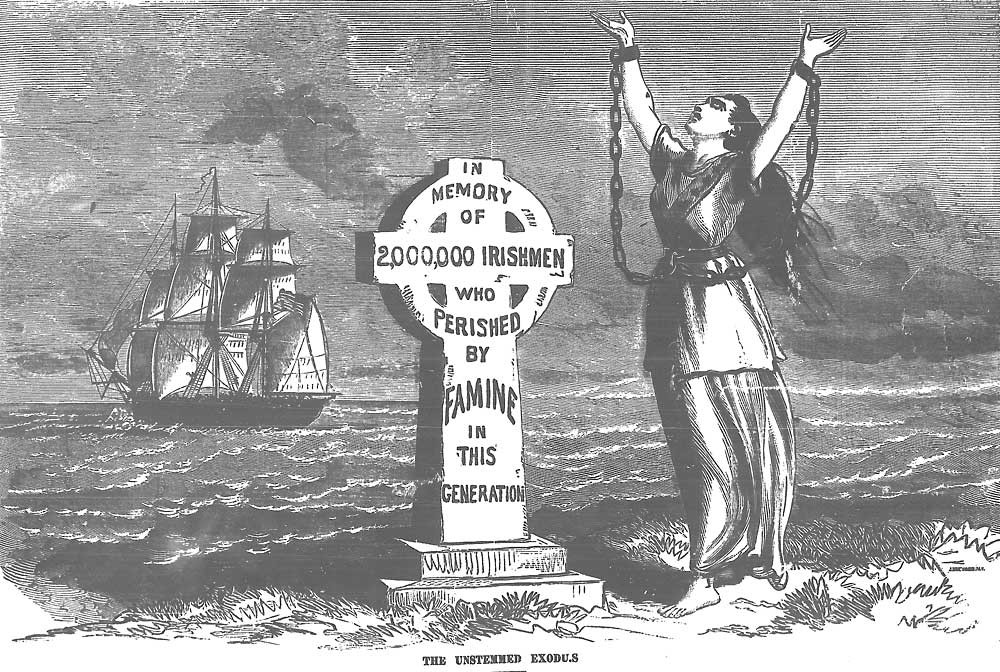
Of course, the period closest to my heart, the Genocide of 1845 to 1849, the Irish people who died of hunger numbering well over 1 million, while there was food enough in the country to feed 3 times the population. When the people were called upon to refuse to pay rents to idle land lords and instead to feed their children, and to rise in revolt against the system, the system which was murdering them. The Church ordered them to pay their rents, ignoring the fact that their children were dying of starvation, the clergy prioritised their immortal souls over the welfare of their children. The church threw all the weight of their moral authority against the revolutionary movement for the freedom of Ireland.
